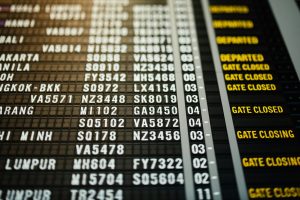Navigating Global Accessibility: Travel for Differently-Abled Adventurers
Traveling is a dream for many people, but it can be a complex and challenging endeavor for those with disabilities or accessibility needs. From navigating busy airports to finding wheelchair-friendly accommodations, there are many factors to consider when planning a trip. However, with the rise of initiatives and efforts towards inclusive and accessible travel, more and more opportunities are becoming available for differently-abled adventurers. In this article, we will explore the topic of navigating global accessibility and how individuals with disabilities can have fulfilling and enjoyable travel experiences.
The Importance of Accessibility in Travel
Accessibility in travel is often overlooked and undervalued, but for those with different abilities, it is a crucial aspect of their travel experience. Accessibility means having the means and opportunities to participate in activities and visit places without limitations or barriers due to disabilities. It encompasses a wide range of accommodations, including physical accessibility, sensory accessibility, and accessible services. The absence of such accommodations can prevent individuals with disabilities from fully experiencing and enjoying their travels.
The Rise of Inclusive Travel
Fortunately, there has been increased awareness and efforts towards improving accessibility in the travel industry. Organizations such as the World Tourism Organization (UNWTO) and the International Air Transport Association (IATA) have been promoting inclusive and accessible travel for all individuals. Airlines, hotels, and transportation services are also taking steps towards becoming more accessible by offering specialized services and implementing accessibility features such as ramps and audio announcements.
Moreover, there has been a rise in specialized tour companies and destinations that cater specifically to differently-abled travelers. These companies offer customized itineraries and accommodations to meet the specific needs of their clients, making it easier for them to explore and experience different parts of the world.
Challenges Faced by Differently-Abled Adventurers
Despite the progress made towards inclusive travel, there are still challenges faced by differently-abled adventurers. The most significant challenge is often transportation. Many countries and cities do not have adequate infrastructure to support accessibility needs, making it challenging to navigate and explore. Inadequate accessibility services in airports and train stations can also cause delays and difficulties for travelers. In some cases, the lack of accessibility may even prevent individuals from traveling to certain destinations altogether.
Social Stigma and Discrimination
Another challenge faced by differently-abled travelers is the social stigma and discrimination they may encounter during their travels. Unfortunately, many individuals with disabilities still face discrimination and lack of understanding from others, which can make them feel unwelcome or uncomfortable in certain destinations. As a result, individuals may avoid traveling to specific locations or participating in certain activities, limiting their travel experiences and opportunities.
Tips for Navigating Global Accessibility
In order to have a smooth and enjoyable travel experience, here are some tips for differently-abled adventurers to keep in mind:
Research and Plan Ahead
Before embarking on a trip, it is essential to research and plan ahead. Look for destinations and accommodations that are known for their accessibility and make sure to book in advance. Research the transportation options and accessibility services offered by the destination and make any necessary arrangements beforehand.
Communicate Your Needs
Communication is key when it comes to navigating global accessibility. Be sure to inform airlines, hotels, and other service providers of your specific needs and requirements so they can make the necessary accommodations. Also, do not hesitate to reach out to your tour company or destination for any questions or concerns.
Be Prepared for the Unexpected
Despite the best planning and efforts, unexpected situations can occur during travels. Be prepared for any challenges or changes, and have a backup plan in place. This can include bringing extra medications, contact information for your medical providers, and having a list of accessible emergency services at your destination.
Advocate for Accessibility
While navigating global accessibility can be challenging, it is also an opportunity to advocate for inclusion and accessibility. If you encounter any issues or barriers during your travels, do not hesitate to voice your concerns and provide feedback to the service provider. This can help create awareness and promote change for better accessibility in the future.
In Conclusion
Traveling is a wonderful and enriching experience, and it should be accessible for all individuals, regardless of their abilities. With the rise of inclusive travel and continuous efforts towards accessibility, there are more opportunities than ever for differently-abled adventurers to explore the world. By understanding the challenges and tips for navigating global accessibility, individuals can have fulfilling and enjoyable travel experiences, opening up a whole world of possibilities.











